

Sausalito-based DNM Architecture is collaborating with fellow Bay Area creative firm Nonfiction to design and produce Jaza Solar Hubs – field assembled power centers designed to bring clean, renewable energy to Nigerian localities – while empowering local women to run 100% of operations.
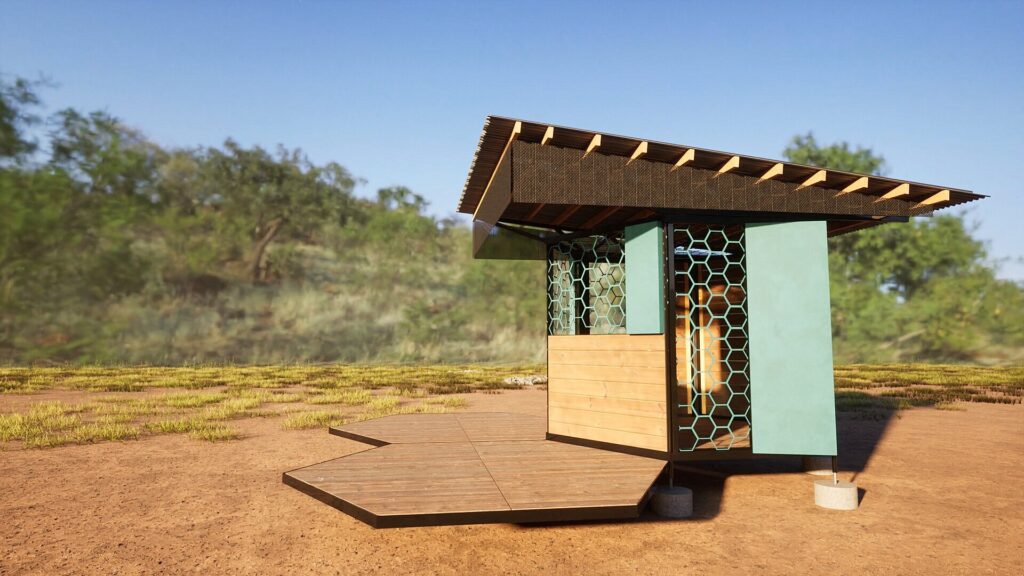
Render courtesy DNM Architecture
July 10, 2024 – Sausalito, CA
The Project:
Nonfiction is pleased to announce the manufacturing and deployment of the brand-new Jaza Solar Hubs, kiosks that collect solar energy in rural communities and distribute it at an affordable cost to villages all over Nigeria.
Phnam Bagley, industrial designer, futurist, aerospace architect, and co-founder of Nonfiction, explains, “Even in cities like Lagos, people experience power outages multiple times a day, disturbing their daily activities. Those who can afford it run diesel generators to supplement the grid, to great financial and environmental detriment. Jaza Solar Hubs are a solution to this problem.”
“This was our first time addressing manufacturing in Africa, which, from a sustainability standpoint, is a no-brainer: raw materials come from Africa, so why should we ship them across continents to be processed and sell them back for a higher price in Africa? Why should we depend on foreign jobs and skills when we could train manufacturers and operations specialists to do it locally?”
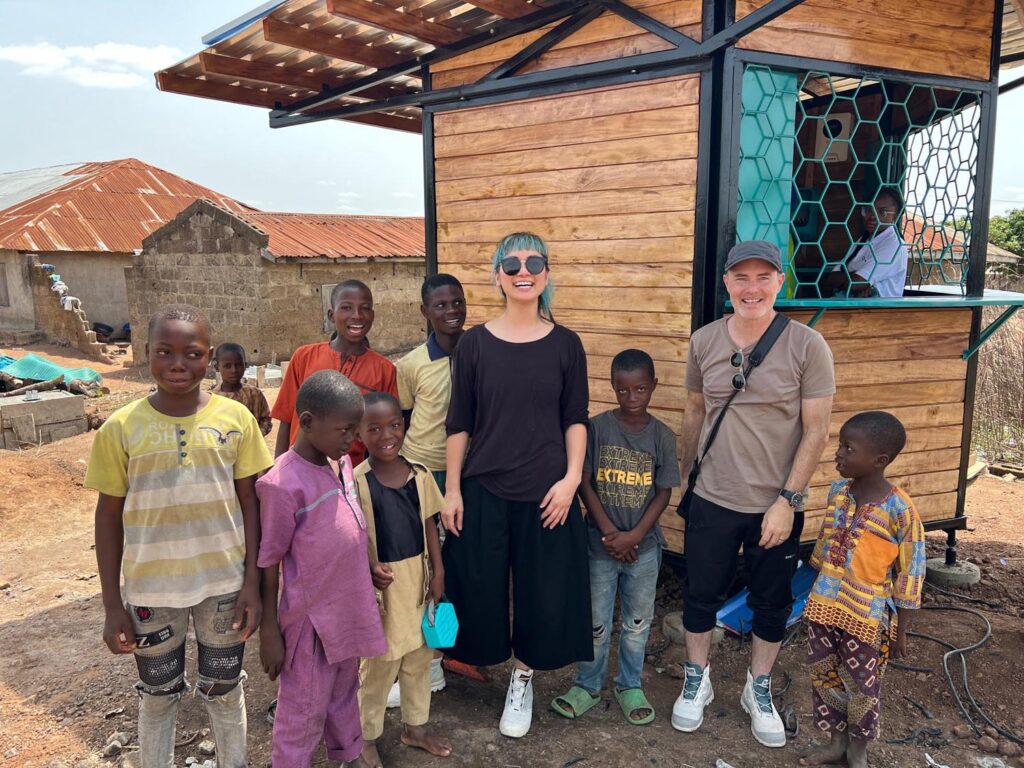
Image: Mardis Bagley
David Marlatt, AIA, founder and principal of DNM Architecture, adds, “DNM’s contribution to this project was to develop the design for panelizing and flat packing, as well as solving the problem of assembling wall, floor and roof panels in the field using no power tools whatsoever – all in a single day. As a firm that considers community and nonprofit work an important part of our mission, we are incredibly proud to be part of a solution with life-changing implications for West Africa and worldwide.”
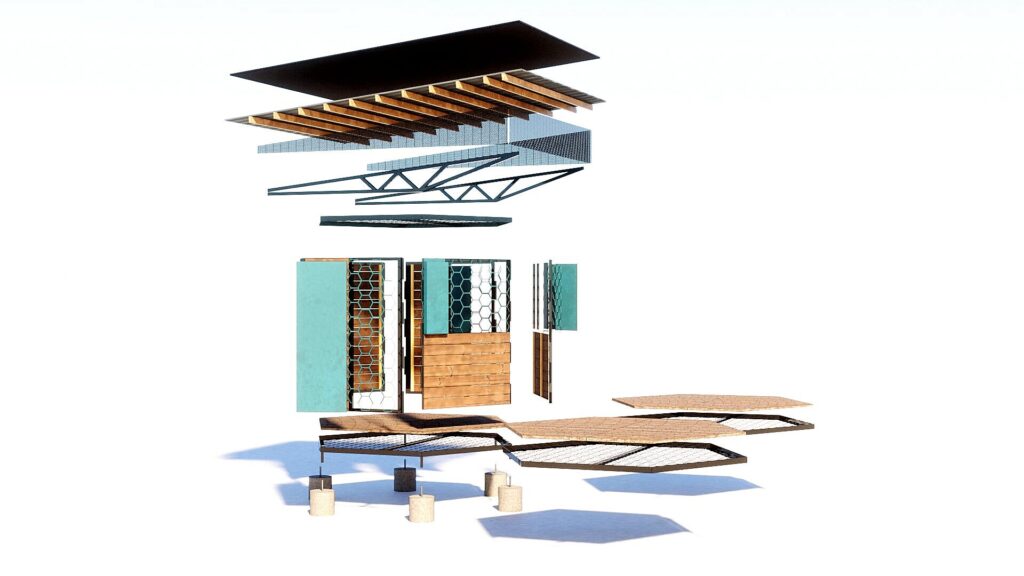
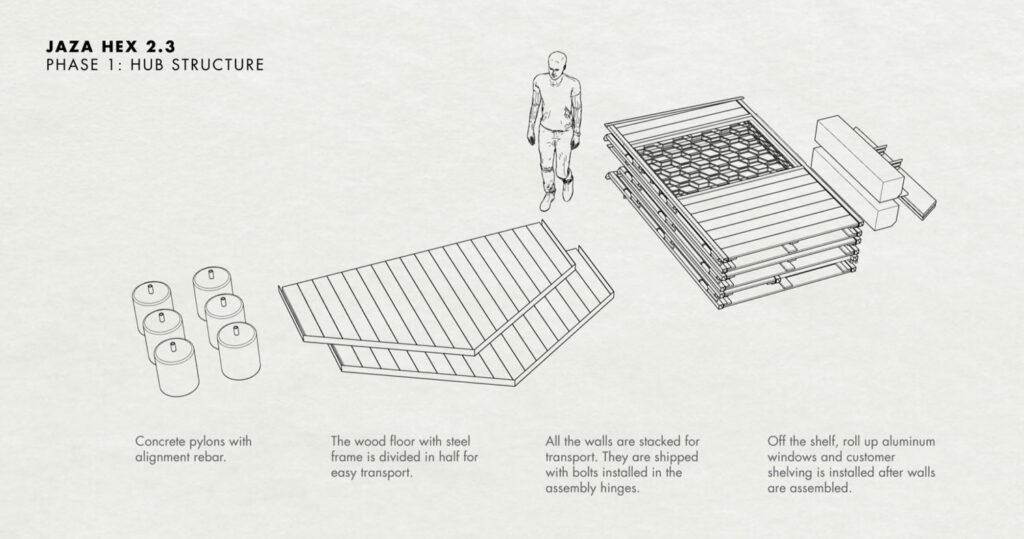
Renders courtesy DNM Architecture (top) Nonfiction (bottom)
DNM also designed an ingenious precast foundation concept using threaded rod and bolts to level the floor of each Jaza Hub on site, eliminating the need for traditional foundation work that is invariably time-consuming and skill-intensive.
In addition to the Jaza Hubs, Nonfiction rebranded and designed the inverters and the Jaza60 batteries of previous Jaza efforts. These 60 Ah rentable batteries can power cell phones, light bulbs, and small fans to keep cool in the punishingly hot Nigerian climate, bringing innovative power solutions down to the individual household level.
The Impact:
Jaza Hubs have become an essential source of energy for the community. Centered around the theme of beehives, the Hubs are exclusively operated by young women, who are taught customer service skills and tools to optimize their hub’s performance. Called “Jaza Stars,” these local women are the most important part of the Jaza ecosystem – just like queen bees in a hive. Jaza Stars are paid a decent income and commission, bringing financial independence and dignity where options are typically limited for them, and this new iteration of the Jaza Hub is even designed to account for Jaza Stars who are new mothers, allowing space to care for their babies.
“Through the 8 years of Nonfiction‘s existence, few projects have been more rewarding than working with Jaza,” states Phnam Bagley. “This is one of the most ambitious and well-executed business plans I have ever encountered. We want to work with more companies that care this much about the human, environmental and economic impact of new ideas.”
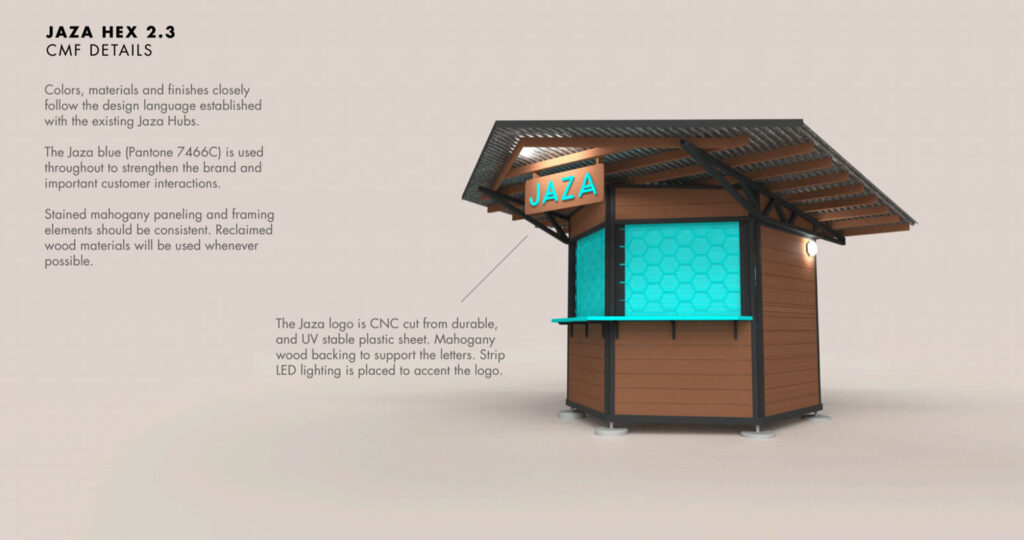
Mardis Bagley, Nonfiction co-founder explains, “After spending 20 years manufacturing in China and in the US, it was interesting to work with vastly different standards of execution and tolerances in a Nigerian factory. But with good communication, short prototyping cycles, and exposure to real-world situations (wind, rain, people, cultural), the Jaza team was able to launch the first of 500 Jaza Hubs in record time.”
“Working with Phnam and Mardis in a design charrette for Jaza produced a modular concept that meets the functional requirements of Jaza in a rugged environment,” adds DNM President, David Marlatt AIA, “but it also expresses who they are as an organization. We were thrilled to play a role in this effort.”
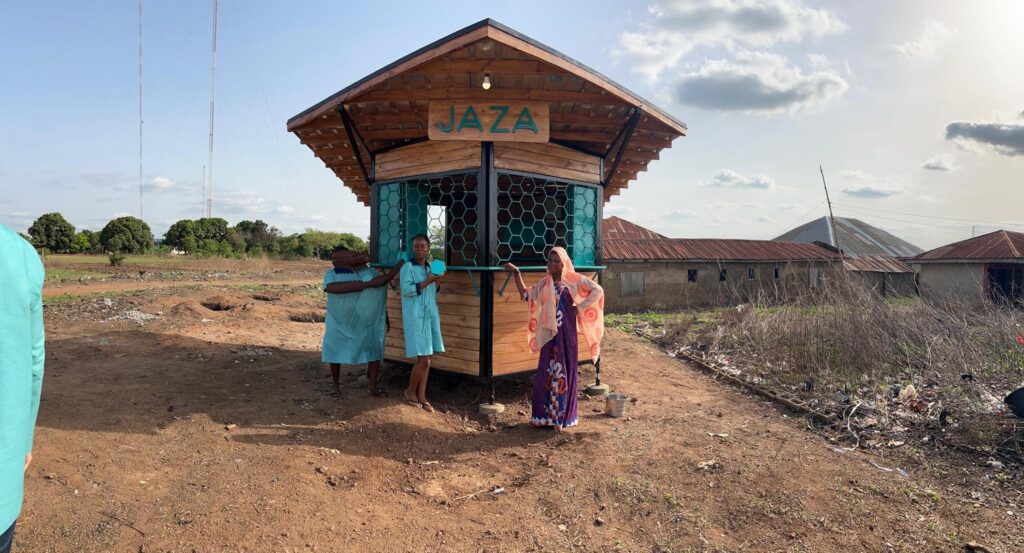
Completed Jaza Solar Hub – Image: Mardis Bagley
About Jaza: Jaza Energy is building a network of renewable energy hubs in communities beyond the electrical grid. A single hub provides affordable and reliable access to electricity in up to a hundred households, and at the household level our portable packs are custom lithium-ion batteries that our customers take home to power anything from TVs to lights and cellphones.
This portable approach to energy leap-frogs transmission lines and wired infrastructure. Every hour of light provided by Jaza displaces kerosene and diesel, which are commonly used for lighting and powering generators.
About Nonfiction: Nonfiction is an award-winning creative studio specializing in industrial design, user experience, strategy, and space architecture. They are an impact driven design studio turning science fiction into reality for a better future.
About DNM: DNM Architecture is a San Francisco Bay Area Architecture firm working on the cutting edge of design and building technology. In addition to residential and commercial projects, DNM considers community and human-centric thought to be a core philosophy. As a signatory to the AIA 2030 Commitment, DNM Architecture strongly advocates for green, sustainable, energy-efficient building to reduce the energy required to construct and operate our buildings.
FOR MORE INFORMATION: [email protected] or 718.884.0689
